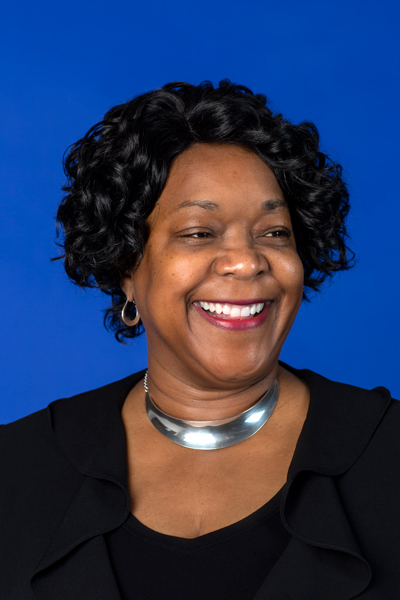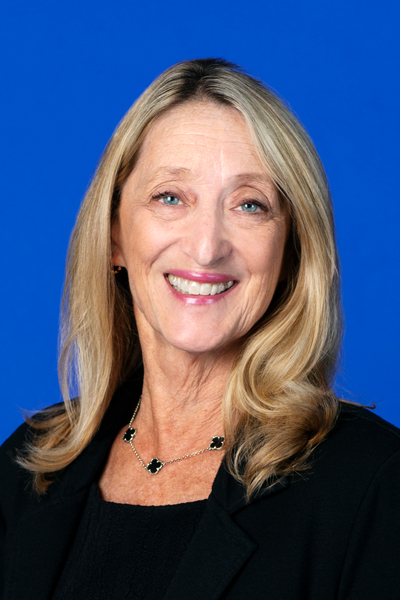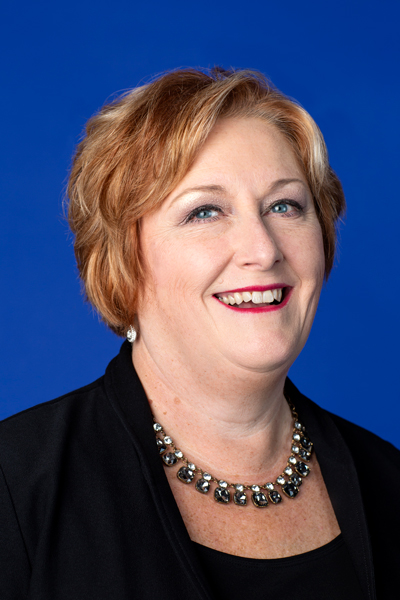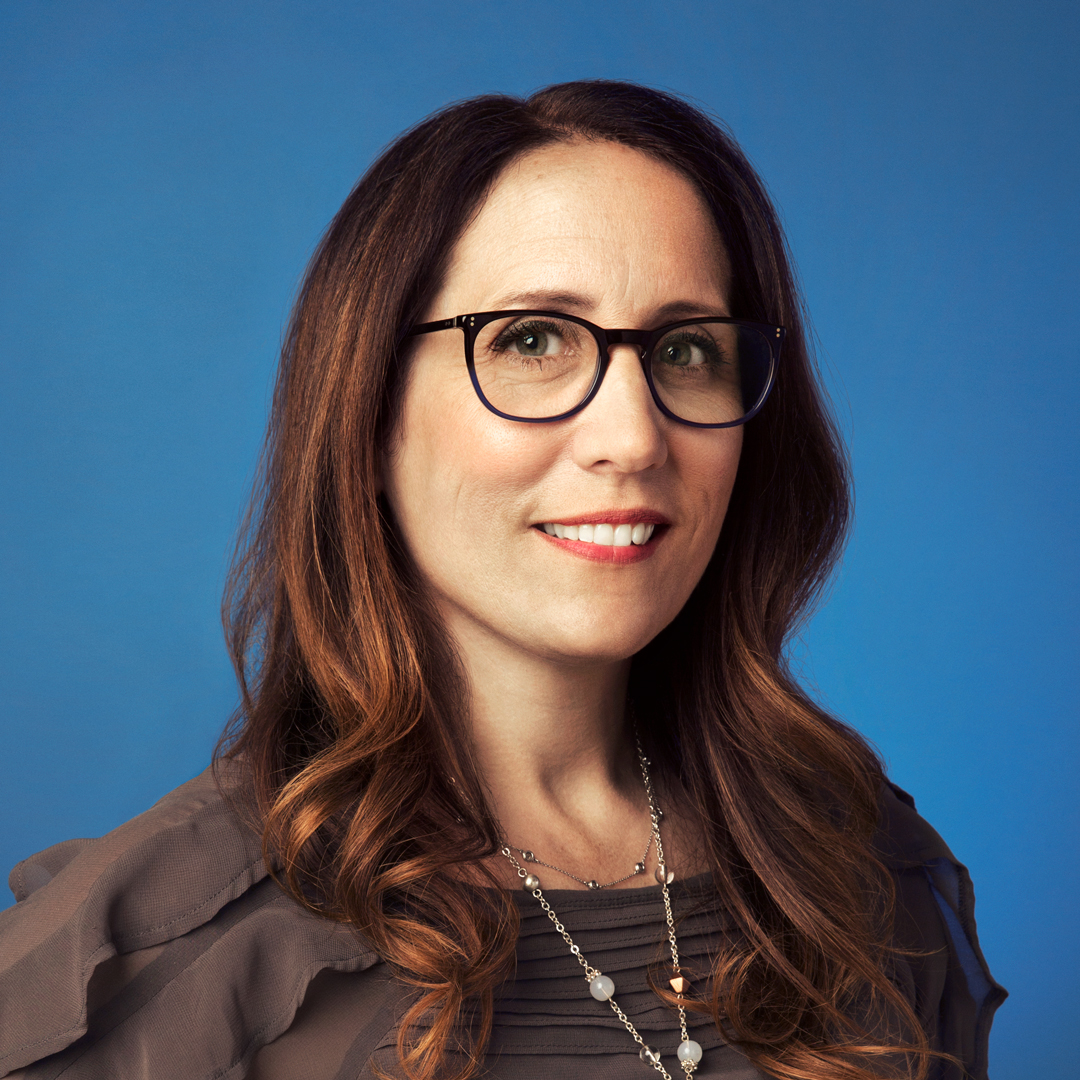While clean energy projects continue to reshape the oil and gas sector, the largest municipally owned electric and gas utility company in the United States is proving that inclusive leadership is as crucial to the energy industry’s future as a diverse portfolio. Based in San Antonio, Texas, CPS Energy bucks state and national norms with unusually high gender diversity at the helm—four out of six members of the executive team are women. That unorthodox culture, cultivated to empower all levels of the workforce, is redefining what it means to be a leader in the energy industry.

Charged with serving more than one million customers (822,000 electric; 348,000 gas), CPS Energy’s New Energy Economy has delivered a cumulative local economic impact of more than $5 billion dollars over the past seven years since its beginning in 2011. As the utility company increasingly prioritizes solar, wind, and renewables in addition to natural gas, coal, and nuclear sources, the emerging hub for clean energy and innovation also seeks diversity of thought to strengthen the company culture—and bottom line. “Energy is facing a new frontier,” says Paula Gold-Williams, president and CEO of the company, which has $11 billion in assets. “What has made the industry successful for the last 150 years will not be what the industry looks like over the next ten to twenty years. We’re going to be the organization that keeps thinking differently.”
Nationally, American women make up 25 percent of executive- and senior-level officials and managers, hold 20 percent of board seats, and are 6 percent of CEOs, according to a recent Catalyst survey. Yet big businesses in Texas trail the national diversity and inclusion ratios, according to the National Diversity Council. The report revealed the state’s oil and gas industry comprises 70 percent women, but only 13 percent are executive leaders; people of color comprise 30 percent of the workforce and 6 percent of corporate governance.
Meanwhile, CPS Energy is disrupting the traditional, organizational culture and talent management structure in favor of more organic networks of diversity and inclusion. Guided by a proactive, people-first philosophy, the industry innovator’s investment in its employees and community may have contributed to its recognition last June, when Market Strategies International ranked CPS Energy as the “Most Trusted Utility Brand in the US Southern Region For 2018” for the second consecutive year.
CPS Energy is closing the gap between workforce diversity and leadership diversity, and that’s why Profile talked with three of its top leaders—Gold-Williams, chief customer engagement officer Felecia Etheridge, and chief legal and administrative officer Carolyn Shellman—about the cultural evolution they are powering up across the company.
What do you think is the most significant barrier to female and minority leadership today?
Carolyn Shellman: Certainly women have had a harder path to leadership roles in business, in some industries more than others. The utility industry has historically been a male-dominated industry, but that is really changing. So I think the lack of opportunities and mentorship is the barrier.
Paula Gold-Williams: It’s a sweeping generality, but men will look at a job description and, even if they don’t have that experience, their confidence fills them up. Women who are a very close match tend to feel less ready for the job.
Felecia Etheridge: As a woman, we have a tendency to want to make sure we are perfect at the job before jumping in. Generally, women don’t put themselves out there.
As part of a uniquely diverse executive team in the energy industry, how has CPS Energy created opportunities for women to succeed, in your experience?
Gold-Williams: To some degree, I’m a reminder that it can be done. As an accountant, I’m a very unusual leader for a 150-year-old energy company. It used to be that the more experience you had, the better the opportunities, but we’ve become better listeners and more appreciative of people’s diverse backgrounds. We need different thinking to augment our deep, rich history.
Etheridge: We want everyone to strive to be a leader, and we want to give them the opportunity to be a leader. There are not a lot of companies who want to lean into it and learn that they need to give people the opportunity to be the best that they can be.
Shellman: We’re seeing more and more women in leadership positions. That means that there are men who are open to giving women opportunities and helping them find the path to success. We’ve done a lot of work moving people around within the company.
Gold-Williams: We don’t put people in boxes here.

How has CPS Energy built a sustainable D&I strategy across the company?
Gold-Williams: I never wanted to make it about metrics. People may unfairly think it’s about filling roles with people who are not qualified. We mitigate that thinking by making it more of a conversation and a commitment to making change happen. We believe in long-term career investments. And we’re taking our Zero Harm operational policy into the office because it’s important to share failures so others can avoid those same mistakes.
Etheridge: I do think it’s leadership. Paula is always mentoring the men and women at our company about how being a leader is having a critical understanding of how you’re perceived and the value you bring; what is it that you can teach others, and how do you create followership. I think that’s been inculcated through the whole leadership team.
Shellman: And we’re continuing that tradition. It’s a successful one; it’s one where we’ve given people an opportunity to learn from each other and to meet other people in the company.
Which D&I initiatives are you particularly excited about at CPS Energy?
Gold-Williams: We have a pool of business coaches and life coaches that is externally available to our employees so they can get feedback from a different vantage point—not just people who are directly their supervisors. We also support the organic creation of groups. Financial Services created “Fun Share.” It is a thirty-minute huddle organized solely by employees where they control the agenda, they invite people to talk, and there’s a timer. I love the fact that they give everybody a platform and everyone is equal in that conversation.
Shellman: Legal has developed a very diverse group, and we look for opportunities for women- and minority-led businesses when we hire outside lawyers. We also have networking groups such as Women Empowered and the Association for Women in Energy, which gives women in our workforce the opportunity to meet other women, and we also provide resources and training for different demographic groups to learn and grow.
Gold-Williams: We’ve had a Hispanic organization for employees for a long time, and we have AABE (African-American Blacks in Energy). All groups here are inclusive, and there is a lot of ability to network across the organization. You’ll find people who are in two or three of the networking groups. I think that’s the best way to organically breathe inclusion, understand the importance of diversity to support one another, and then find ways to work together.
Etheridge: We also support STEM, and we support Girl Scouts and Girls Inc. That’s helping us build and plan for our future leaders coming into the company. Inside the company, we have the Women’s Energy Network, where we support women in energy and partner with other agencies focused on ensuring women are prepared.
I have been in the utility industry for almost thirty-seven years, and I was one of the first women. I can tell you, it was a hard-fought career path when I started. As I look at the company we have and the opportunities we offer to women, it is like daylight and dark.
How does your leadership style contribute to the inclusive company culture?
Etheridge: If the people you lead are successful, you will be successful by definition. I think you have to be vulnerable—not an egomaniac—and you truly have to have the heart for helping people get better.
Shellman: Leaders must have vision and ideas to move the company forward, but also stay connected to the people. I try to be open to new ideas and give everyone an opportunity to participate. I want to be a good listener. I want to make sure that the people that work for me know that I’m going to give them the resources they need and honest feedback.
Gold-Williams: I’m a lifelong learner, and I learn from everyone. Early in my career, I took the projects other people never wanted, like a policy creation project, but it was the best way to learn and understand my organization. I encourage employees to feel in control of their own engagement, and management supports them so they feel connected and respected.
What advice can help women achieve leadership roles in the energy industry?
Shellman: Be confident in what you know and be willing to ask questions when you don’t understand. Don’t be paralyzed by a lack of perfection. Be willing to throw yourself out there and risk failure, and do not consider failure permanent.
Gold-Williams: Yes, stop thinking about all the barriers to being successful. Oftentimes for women in particular, parenting or caregiving become the most insurmountable things in the world. I acknowledge the complexities of life—I cared for my parents. So what we like to do here is measure inputs and outputs. We try our best to be flexible. People must understand that in a career that spans decades, you may have challenges, but that shouldn’t stop you from putting your hat in the ring. It’s imperative that you continue looking for opportunities to grow.
Etheridge: Do not wait for the perfect job. Be ready when the opportunity presents itself to jump in and put forth your best effort. Don’t make up your mind before you learn what all your options are. Own it, make it your own, learn what you can, and then pass it along.

From the viewpoint as an industry leader of workforce diversity, what do you think other organizations must do to catch up?
Gold-Williams: No matter how much you have in hard assets, people really make the organization. Don’t create single profiles for success. What we’re looking for now instead of pedigree is emotional intelligence; a person who can aggregate years of experience for the benefit of the organization, and someone whose self-worth is focused on helping customers and being a team player—and that is not gender-specific.
Etheridge: Be intentional. It’s not going to happen by sprinkling pixie dust on it. You have to carve out the time with the real-life men and women who make up the organization. You can’t just do it to achieve a number.
Shellman: And you have to be open to new ideas and not be stymied by how it’s been done in the past. Bring new people in and listen to them. Move people around to help them learn the business from different perspectives and you will have a workforce that’s much more ready to take on the challenges ahead.
In your opinion, what makes a great leader?
Etheridge: For me, a great leader is authentic. They don’t think of themselves. They recognize the success of others around them.
Shellman: Great leaders are willing to discard whatever policies and practices have worked in the past, and have the confidence, based on knowledge, to proceed even when you’re not 100 percent sure. If you’re not willing to try things, you’ll miss opportunities.
Gold-Williams: A great leader considers that they’re a work in progress, and at the same time they encourage those behind them to be better. A true servant leader knows when to set the example and when to stand in the back.
What do you want CPS Energy to accomplish in the next few years?
Shellman: We’re integrating energy technologies like renewable resources and battery storage, and we have to make them more affordable. We’ll continue to move our reliability and great customer service to a world where people want different kinds of service.
Gold-Williams: We have a wonderful foundation, and over the next couple of years we’ll be even more of a learning organization. We’ll be closing two coal units this year, and we want to provide the opportunity for people to lean in and change their career paths. For example, we opened up a tech competition, C3 (Customer Centric Competition), across the company, so people can bring their ideas outside of their normal job description.
Etheridge: Our industry is changing exponentially every day, and the pace is faster and faster. We’re in the evolution, if not revolution, of customer service. There’s prime opportunity for women in our industry to embrace the change and step up to lead it.

